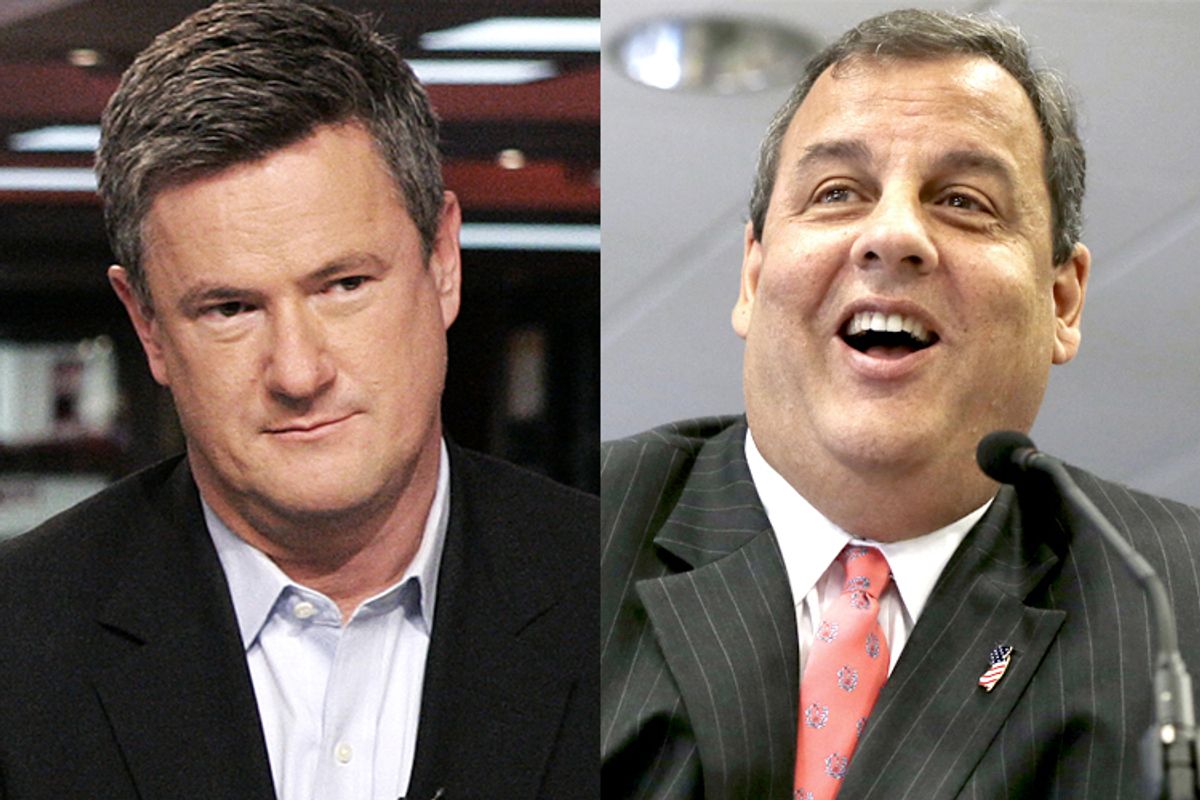Here's a theory: Could it be possible that the local politicians most beloved by D.C. insiders, corporates and the "Morning Joe" centrist set aren't especially loved in the localities over which they preside? Believe it or not, there is some evidence to support this conclusion.
Politico's Maggie Haberman looks at a prime example of this sort of politician in a smart piece Friday morning: Chicago Mayor Rahm "Rahmbo" Emanuel. In Washington circles, Emanuel's legendary streak of terror gives him the aura of a political mastermind who always gets what he wants and leaves his enemies trembling in fear. He blows past "special interests" and stakeholders and, well, "gets things done." He is the ultimate iron-fisted leader. There's a perception within the Beltway that Emanuel's Machiavellian disposition and profane streak is endearing, or cute, or "real." As opposed to simple rudeness that can alienate needed allies.
But in Chicago, where Emanuel is actually employed and up for reelection next year, there is a different perception of Rahm: He's sort of ... unpopular?
When Emanuel exited the Beltway in late 2010 to run for Chicago mayor, he had the tacit backing of a current president and the overt support of a former one. He won the race to succeed Richard M. Daley, and expectations ran high that Washington’s supreme enforcer was just the person to tame the Wild Midwest.
Now, just nine months out from the next election, Emanuel is unexpectedly vulnerable, with an approval rating that is perilously low. The comedown for the Illinois native, who terrified staffers and donors over more than a decade in Washington, has been striking. So has been the contrast between how he’s regarded in D.C., New York and Los Angeles — as opposed to some wards of Chicago.
A Chicago Sun-Times poll released last month showed that Emanuel would draw just 29 percent of the vote if the election were held then. His 8 percent showing in the survey among black voters, a crucial voting bloc for him last time, creates a truck-size hole for another candidate to drive through.
It did not help Emanuel's popularity in certain African-American wards, for example, to wage war against the Chicago Teachers Union and then shout at its African-American leader, "Fuck you," during a meeting. In D.C., that's classic Rahm. Ha ha ha, what a character! To Chicagoans, that was just a really rude and disrespectful thing for Rahm Emanuel to do and indicative of the sort of poor relationship management that's driving down his public support.
Emanuel, of course, isn't the only local politician seen as God's Gift to Politics within the Beltway and as sort of an ass, or at least inattentive to concerns, among the electorate he represents.
Haberman correctly draws the line to the Ur-example of this type of leader in contemporary politics, former New York City Mayor Michael Bloomberg: "a business-minded centrist without much interest in bending to opposition. Except unlike Bloomberg, [Rahm] has no personal fortune with which to appease critics and enhance political friendships." Emanuel is hardly poor, but no, he can't simply buy the necessary friendships that he needs as Bloomberg did. And even though Bloomberg was able to buy three terms, the city grew similarly tired of his operation by the end. Now-Mayor Bill de Blasio and his rivals ran directly against the Bloomberg legacy in the 2013 mayoral primary.
Chris Christie, in New Jersey, is another example of a pol who's long been worshiped in Washington for yelling at everyone. He was able to win a strong reelection in 2013, based largely on his response to Hurricane Sandy (and his team's apparent threatening of all those who didn't endorse him for reelection). But as soon as the George Washington Bridge scandal hit and he became vulnerable, the knives were out, and all those politicians and interest groups whom he'd treated like shit turned on him. His approval ratings have collapsed.
Also in New Jersey, we have Cory Booker, who, as mayor of Newark, took on teachers unions and accepted large infusions of cash from the financial services community, earning the respect of Washington. Who replaced him as mayor when he left for the Senate? Ras Baraka, who ran a campaign "rejecting the corporate interests that thrived in Newark while Booker was mayor."
And sometimes even the Beltway gets wrong what's happening under its very nose. Former D.C. mayor Adrian Fenty was beloved by Washington insiders for his aggressive promotion of "education reform" under the installation of schools chancellor Michelle Rhee. But Fenty was also notoriously short-tempered, dismissive of constituent concerns, and had a poor relationship with various members of the city council. Rhee, meanwhile, went out of her way to offend teachers as a means of boosting her own standing. The Fenty-Rhee tandem went down in the city's 2010 Democratic primary. (Vince Gray, who upended Fenty in 2010, also lost his reelection bid earlier this year, for completely different reasons.)
It's not surprising that local politicians favored by the D.C.-based national political elite as Heroic Leaders frequently suffer at the hands of their own constituents. Among elites, there's a certain, strong revulsion toward the concept of politicking and bringing (non-corporate) stakeholders into the decision-making process. As in, there's a revulsion toward democracy. But that attitude doesn't help the politicians in question during their reelection bids.

Shares